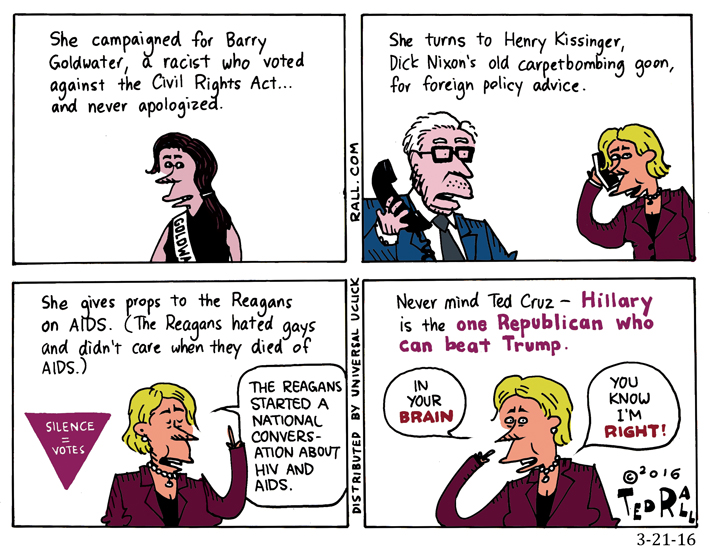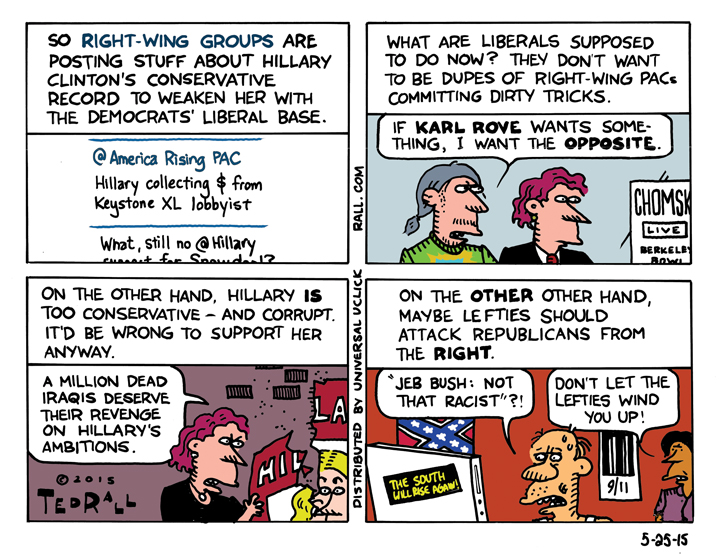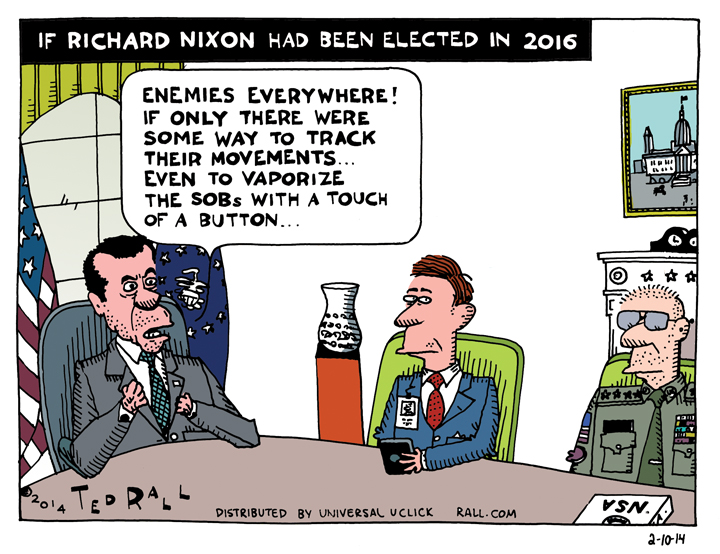
This past week more than 300 American newspapers colluded — if the word fits… — to simultaneously publish editorials declaring themselves, contra Trump, not “the enemy of the people.” Shortly thereafter the U.S. Senate unanimously passed a resolution declaring that it too did not consider the press to be, in a phrase that evokes the rhetoric of the former Soviet Union, state enemies.
The Boston Globe organized this journalistic flash mob.
“The greatness of America is dependent on the role of a free press to speak the truth to the powerful,” the Globe‘s editorial board wrote. “To label the press ‘the enemy of the people’ is as un-American as it is dangerous to the civic compact we have shared for more than two centuries.” President Trump has repeatedly derided the media as “the enemy of the people” and purveyors of “fake news” on Twitter and at campaign rallies.
The First Amendment guarantee of press freedom, the Globe wrote, “has protected journalists at home and served as a model for free nations abroad. Today it is under serious threat.”
Is it really?
The surprise election of Donald Trump has elicited more the-sky-is-falling handwringing than any other political event in my lifetime (I will turn 55 next week). Very Serious People have warned in Big Important Newspapers that the rise of Trump harkens the transformation of the U.S., and other Western democracies, into fascist states. Even before he took office, the ACLU called Trump “a one-man constitutional crisis.”
No doubt, Trump’s rhetoric evokes the president’s authoritarian instincts: deriding his foes as anti-American, calling for and ordering mass deportations, supporting torture, and yes, press-bashing showcase the mindset of a man who doesn’t support democratic values and probably doesn’t even know much about the history or philosophy behind them.
But let’s separate Trump’s crude rally remarks and crass online rants from his Administration’s policies. What is he actually doing? How does his day-to-day governance represent a radical departure from the norms established by presidential precedents?
When you set aside Trump’s talk in order to focus instead on his walk, it is hard to conclude that he is an outlier by American standards. A better analogy, a friend observes, is Kaposi sarcoma, a cancer commonly associated with AIDS. It can kill you. But it’s not the main reason you’re having problems.
In other words, Trump isn’t — despite what 300-plus newspaper editorial boards would have us think — a root cause of American crisis. He is a symptom of preexisting conditions. This is important. Because if we delude ourselves into thinking that getting rid of Trump will fix what ails us, things will only get worse.
Running down the list of what offends people about Trump, there is nothing here we haven’t seen before — and ignored when other presidents did them.
Trump stands accused of colluding with Russia to steal the 2016 election. There is still zero evidence that this happened. It’s still just vague insinuations leaked to newspapers with histories of cozying up to the CIA-FBI-NSA by anonymous CIA-FBI-NSA spooks.
There is, on the other hand, ample evidence that Ronald Reagan colluded with Iran to delay the release of the 52 American embassy hostages held in Tehran in order to destroy Jimmy Carter’s reelection chances.
Richard Nixon colluded with a shadowy Taiwanese business executive with ties to South Vietnam in order to scuttle the Johnson Administration’s last-ditch attempt to negotiate peace between South and North Vietnam just before the 1968 election. Nixon squeaked by the Democratic nominee, Vice President Hubert Humphrey, by 0.7%. LBJ said Nixon was guilty of “treason,” but nothing happened.
Trump has been criticized for mass deportations of illegal immigrants, including separation of children from their parents, and rightly so.
But there is nothing new about Trump’s actions on immigration. Bill Clinton deported 12 million people, George W. Bush deported 10 million and Obama deported 5 million. (Obama’s numbers were lower but more robust because he ordered ICE to charge illegal immigrants as criminals. They faced prison if they returned. Previous presidents merely sent them home on buses and planes.)
As the National Immigration Law Center points out, “President Trump is exploiting the tools and infrastructure set in place by previous administrations to (1) expand the definition of who should be banned and deported and (2) militarize federal agencies and build up the deportation machine.”
Separating children from their parents at the border began under Obama, albeit in smaller numbers.
Trump has legitimized the “alt-right,” i.e. the psychotic right-wingers we used to call Nazis, Klansmen and fascists. Even after a fascist murdered a woman and injured others at an alt-right riot in Charlottesville, the president wallowed in false equivalence: “You had some very bad people in that group, but you also had people that were very fine people, on both sides.” Coddling racists is disgusting. But it’s not new to American politics.
During the 1990s then-First Lady Hillary Clinton called some African-American youth “superpredators.”
Reagan relied on racist dog-whistles during his 1980 campaign, which he launched in the small Mississippi town where the Klan murdered four Freedom Riders during the civil rights movement of the 1960s. “I believe in states’ rights,” Reagan said. States right was political code for supporting racial segregation.
Reagan also referred to Cadillac-driving “welfare queens” and “strapping young bucks” buying T-bone steaks with food stamps on the campaign trail.
On substance, legislation and regulation, Donald Trump is virtually indistinguishable from his predecessors, many of whom are responsible for far more serious attacks on democracy.
George W. Bush alone is guilty of far more heinous crimes. He introduced the dangerous explosion of “signing statements” in which the president signs a bill into law and then crosses his fingers behind his back, secretly ordering that the law not be enforced. And he invaded Iraq preemptively, an extreme violation of international law, which states that nations may only go to war in self-defense or when faced with a grave and imminent military threat.
Where Trump differs from previous presidents is in tone. He is obnoxious and obscene. He lies — loudly. At least in public — they all swear in private — Americans like their leaders calm, deliberative and low-key.
It isn’t surprising that Trump’s trash-talking is freaking people out. But we shouldn’t conflate rudeness with an existential threat to democracy. Democracy, decency and civility were never real American values in the first place. That, not Trump, is the real problem.
(Ted Rall (Twitter: @tedrall), the political cartoonist, columnist and graphic novelist, is the author of “Francis: The People’s Pope.” You can support Ted’s independent political cartoons and columns and see his work first by sponsoring his work on Patreon.)


 To my many friends and readers who plan to vote for Hillary Clinton: please stop bullying me.
To my many friends and readers who plan to vote for Hillary Clinton: please stop bullying me.



